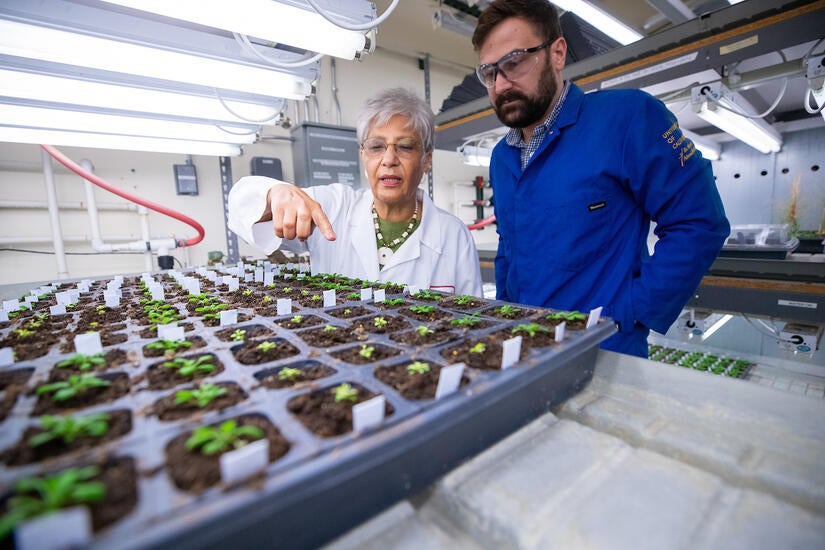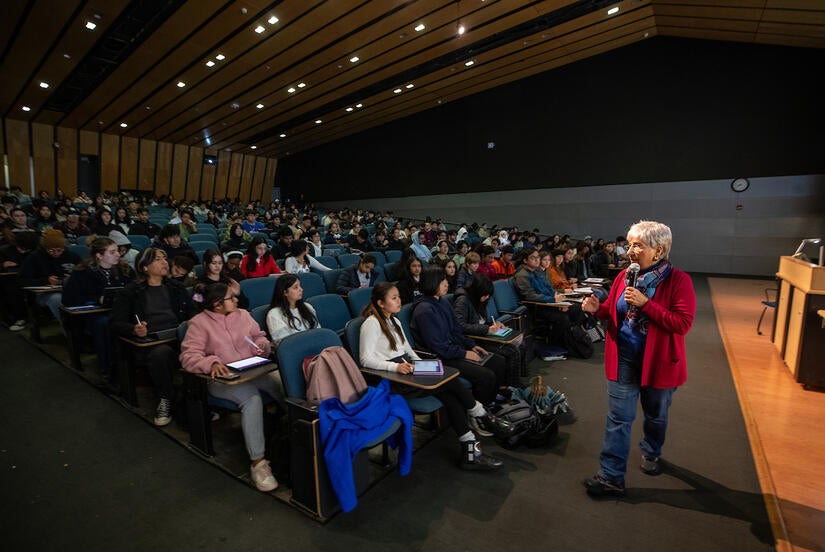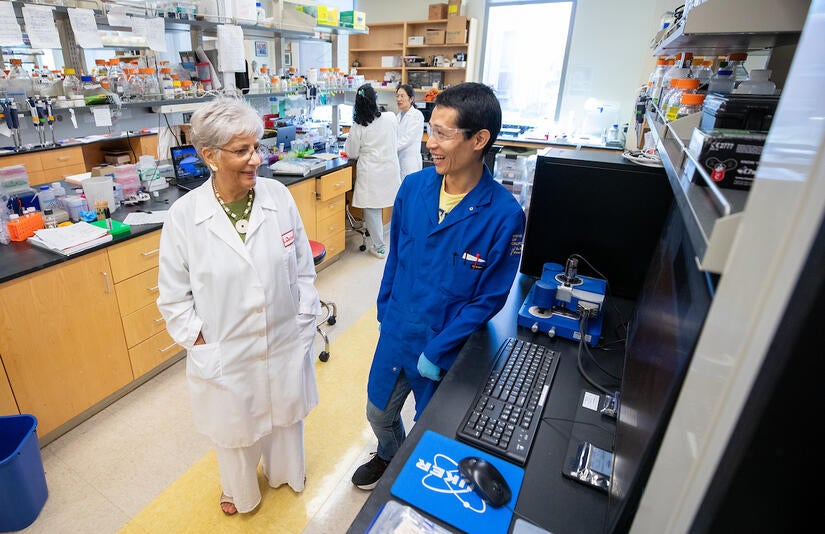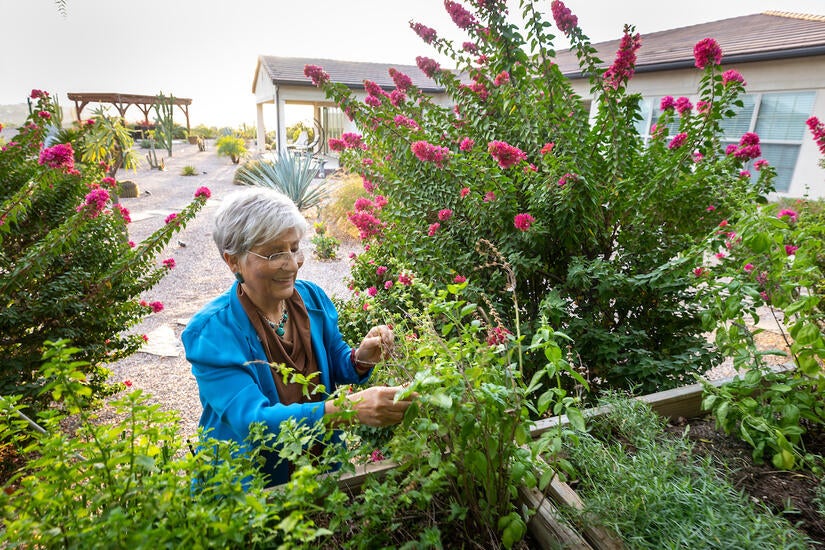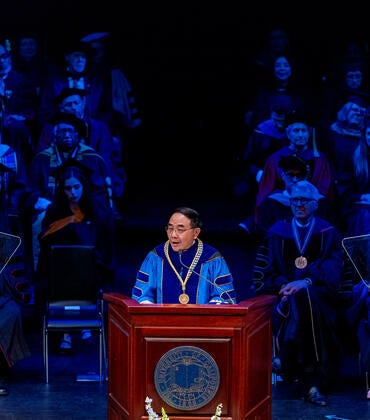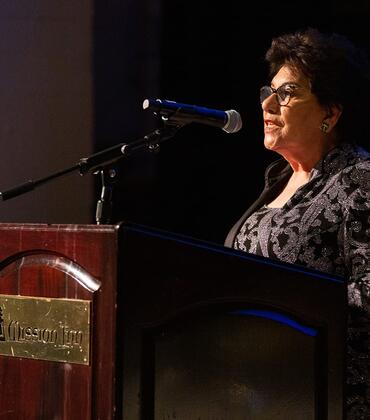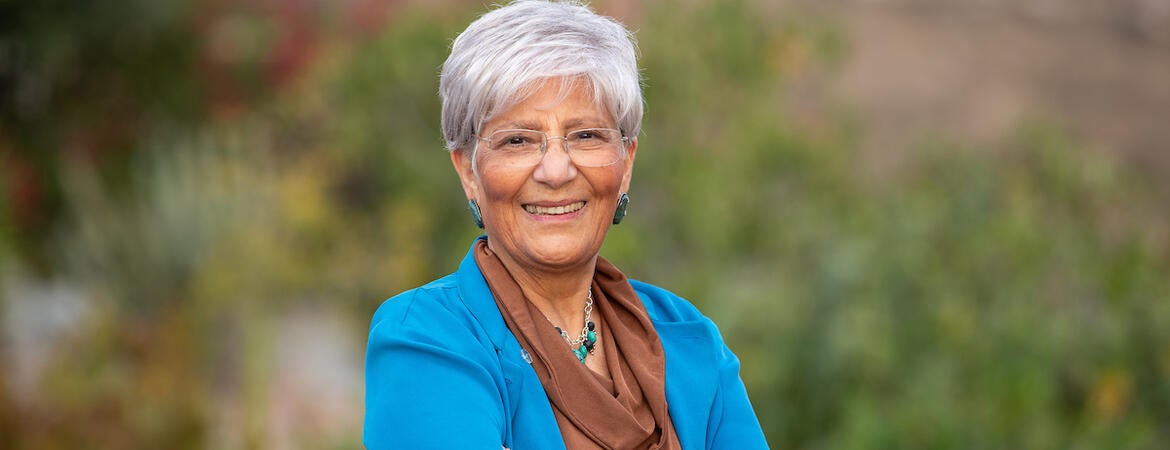
In 1980, amid the turmoil of the Iranian Revolution, Katayoon “Katie” Dehesh fled Iran on a cold October night, leaving behind the life she knew.
Staying would have provided physical safety but at the expense of her intellectual and personal freedom. She would have lost the freedom to teach, to learn, and to engage with the world beyond Iran’s borders. Compelled by a relentless pursuit of knowledge and an unwavering desire to shape her own path, Dehesh embarked on a journey that would take her first to Germany and then to the United States, carrying with her a guiding mantra: be powerful.
Since joining UC Riverside in 2016, Dehesh has led the Dehesh Lab as a distinguished professor and molecular biochemist, where she drives pioneering research in botany and plant sciences. As the Director of UC Riverside’s Institute for Integrative Genome Biology, the holder of the Ernst and Helen Leibacher Endowed Chair, and a member of the German National Academy of Sciences, Dehesh has established herself as a leading figure in plant science.
Her love for life — as well as her family, students, and for science — is palpable. That passion is what triggered her journey to freedom, one that she often recalls with picturesque memory.
“It took four days by bus to reach the Turkish border, no flights were leaving Iran because of the Iran-Iraq war. We traveled at night with the headlights off. I was the only woman on board, and people assumed I was a prostitute,” Dehesh said. “I hadn’t washed, gone 24 hours without food, and no hotel would rent me a room. When we reached Istanbul, I finally found a place to stay and barricaded the door with a bed. By dawn, I was buying my ticket to Germany, and I’ve never looked back.”
Standing just above 5-feet, Dehesh’s presence is grand. She walks in powerful strides and speaks with conviction. She did, after all, serve in the Iranian military, a requirement for working women with a Ph.D under the Shah. Though she initially dreamed of journalism, Dehesh’s scientific journey took root during a university class trip to Maharloo Lake in southern Iran. Watching succulent plants thrive in saline waters, her curiosity sparked. This moment was the beginning of her fascination with plant biology.
“The memory of those resilient succulent plants serves as a constant reminder of the boundless potential for discovery within the natural world. It underscores the power of nature to inspire and guide us toward our true callings,” said Dehesh in a Q&A with the Association of American Universities, of which UCR is a member. “From that moment forward, I embarked on a journey that would not only deepen my understanding of the botanical world but also lead to significant contributions in the field of plant biology.”
Dehesh’s passion for learning is contagious, and she is deeply committed to empowering women in science. She actively participates in conferences and collaborations aimed at supporting women, especially women of color, in scientific fields. She motivates her students too. In a recent lecture to 500 students, she paced the room, sparking discussions on lipids and membranes projected on large screens. Each time a student responded, she reinforced their confidence with a resounding “POWER!”
Within her lab, Dehesh cultivates a culture of critical thinking, curiosity, and intellectual growth. Recently, she guided a discussion on plant senescence, challenging her lab members to think deeply about their hypotheses and methods. Her team describes her as a supportive mentor, encouraging them to balance their personal lives with their scientific pursuits.
“Personal joy is as important as scientific joy,” she often tells her team, embodying her belief in a balanced approach to life and work.
Dehesh’s lab explores diverse topics, from understanding the breakdown of E. coli biofilms to uncovering how plants adapt to environmental stresses.
“Understanding flora is fundamental to understanding life across all species,” she said, bridging insights from plant biology to broader ecological and interspecies connections. “We start with plants and move outward, exploring the fascinating overlaps and distinctions between plants and animals.”
Her commitment to diversity is central to her lab, where she brings together students from varied backgrounds and areas of expertise. Having experienced the challenge of adapting to new cultures, Dehesh values the richness of perspectives that diverse voices bring to academia.
Leaving Iran meant accepting a permanent ban on returning, a price she willingly paid for the opportunity to pursue her dreams.
“Any success I achieve here comes with a responsibility to pay it forward,” Dehesh said.
This commitment to mentorship inspires her to guide the next generation, encouraging them to overcome barriers and make meaningful contributions.
“In the tapestry of life, resilience and adaptability are woven into success,” Dehesh said. “As immigrants, our journeys are filled with both challenges and opportunities. Every hurdle you overcome is a steppingstone to your dreams. Embrace your experiences, they’re the colors in our nation’s mosaic. Believe in yourself, lift others as you climb, and let excellence guide you. In the U.S., the land of boundless possibilities, your journey stands as a testament to hope, perseverance, and achievement.”

